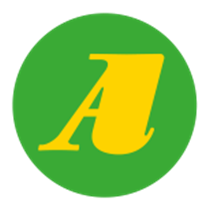Personal, Social, Health Education & Citizenship
Personal Social Health Education & Citizenship is at the heart of our curriculum - its knowledge skills and values provide the foundation on which all learning takes place.
The teaching of PSHEC is delivered through four main strands: cross-curricular lessons, workshops and assemblies, annual themed days and pupil-led group sessions.
Aims of our curriculum
At Argyle, teachers plan and deliver PSHEC lessons using the Camden Health and Wellbeing programmes of study, which include:
- A comprehensive relationships and sex education (RSE) curriculum (Years 5&6);
- Emotional health and wellbeing/mental health including resilience;
- Staying safe and managing risk (both online and offline);
- Tackling prejudice and understanding difference and diversity;
- Healthy me;
- Careers and the world of work.
Cross- curricular lessons
PSHEC is taught integrally throughout the rest of the curriculum. Links have been made to the Science, Humanities, English and Foundation curriculum so that PSHEC is not taught in isolation but rather the key themes can be considered within a meaningful context. However, there are times when it will be taught as a discrete subject, such as RSE and drug education in years 5 & 6.
PSHEC is also taught through circle time activities, role play and hot seating. This gives children time to discuss key topics and deal with any misconceptions.
Healthy Me
Throughout their time at Argyle, children are taught how to stay healthy and keep fit. Within our Design and Technology lessons, children learn how to cook healthy meals and snacks, encouraging them to make healthy choices beyond the school day.
Children are also encouraged to stay fit through the Argyle Mile, a scheme through which children of all ages get together to run a mile, once a week (every Wednesday morning before school). During sporting weeks, all children are encouraged to run a daily mile, giving them the opportunity to build up fitness and celebrate their own personal best.
Assemblies and workshops
Every week, we meet as a whole school to discuss topics linked to PSHEC. Our Values Assembly examines our social interactions both as members of the school community and the wider world through our value of the month. For example, during our month on resilience, our assemblies focus on social stories highlighting the importance of being resilient and persevering through adversity.
Organised workshops support the delivery of the PSHEC curriculum. Throughout their time at Argyle, each child will take part in a variety of workshops looking at social and emotional issues. For example, the NSPCC deliver their child safety and safeguarding workshop on a two-year cycle giving each child the opportunity to discuss safety issues pertinent to them at each key stage of learning.
In key stage one, children also take part in the Teddy Bear Clinic, a series of interactive workshops on how to stay healthy, delivered by medical students from UCLH. Other workshops in key stage one include Road and Fire Safety.
In Key Stage 2, we host a number of workshops looking at issues that children may encounter living in the heart of Central London. For example, children in upper key stage two take part in workshops on Avoiding Gangs and Anti-Radicalisation. All year groups have an annual E-Safety Workshop run by the Camden Learning Centre, which gives them the tools and the knowledge to stay safe when using the internet.
Themed Days
Being an active citizen is an important part of our PSHEC curriculum at Argyle, and this is supported through our themed days. Every year, children raise money by fundraising for Children in Need and Red Nose Day/Comic Relief.
We also have themed weeks where children focus on a social issue important to them. For example, during Anti-bullying Week classes focus on an issue linked to the cause of bullying. Similarly, children have taken part in our Equalities Week where children have learnt about different types of families and the importance of diversity. On a three- year cycle, Argyle organises a Careers Day where members of the community are invited to discuss and deliver workshops linked to their career.
Pupil led sessions (School Forum and School Council)
Raising pupil voice is an important part of our school philosophy and is one of our School Improvement Priorities. Opportunities for the children to express their voice and articulate their ideas are planned throughout the curriculum as a whole and in particular in PSHEC curriculum. To further develop our children's oracy, we have set up School Forum. Children meet in small groups, which are mixed across year groups, and discuss a topic linked to PSHEC. Year 6 children take the lead in these groups and take notes on the discussions. One recent topic for discussionwas: 'If you could make a law what would it be?' We see School Forum as an opportunity for children to build relationships across the school and develop confidence to articulate their ideas and opinions.
At the beginning of each academic year, our School Councillors are chosen democratically. Once elected, children have a duty to make a difference in the school. Every month, each class has a Class Council session with their elected School Councillor, which is an open forum in which all children can discuss any issues that concern them or any changes they would like to see in school. School Councillors then meet with the relevant people and make the changes needed. In this way, changes are driven by pupil voice. Every year, School Councillors also take part in the Camden Debate, in which children visit the Camden Council Chambers and debate a topic with other Camden primary schools.
